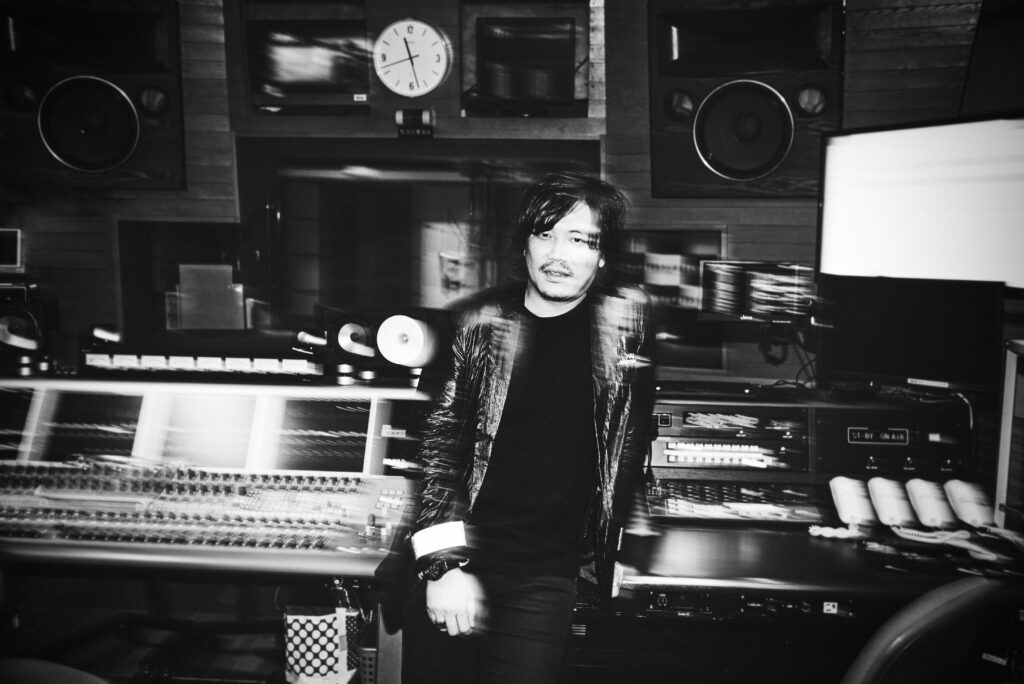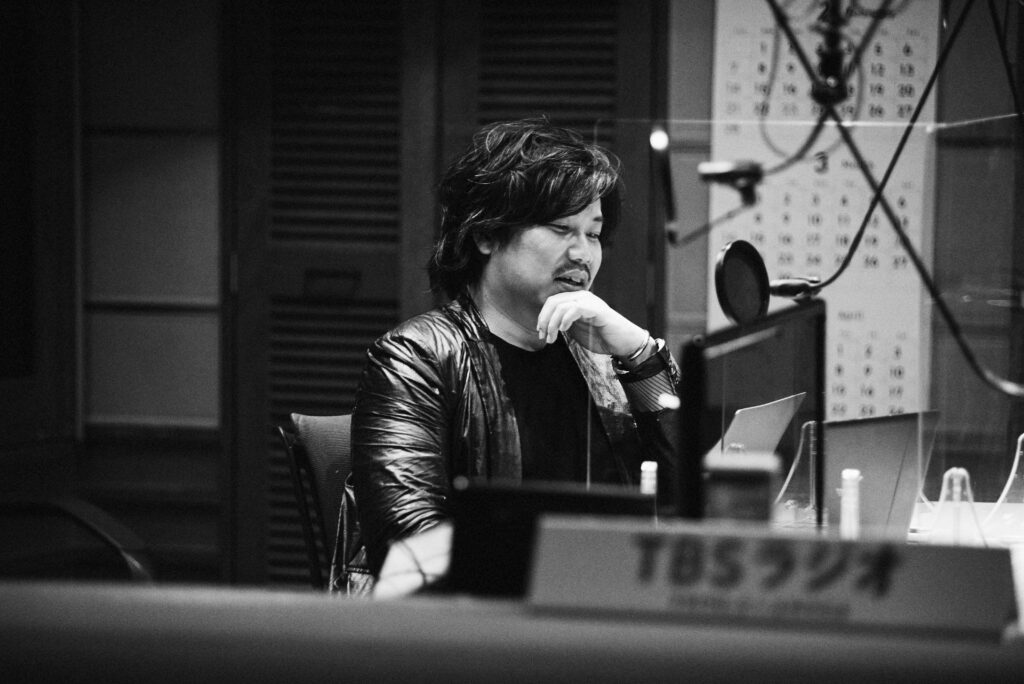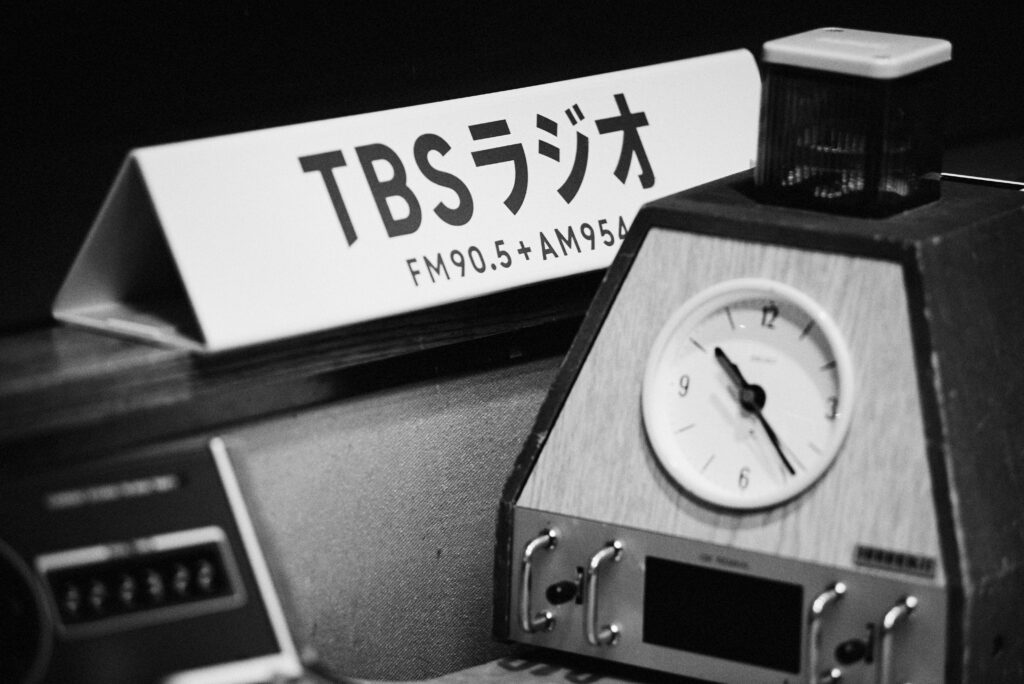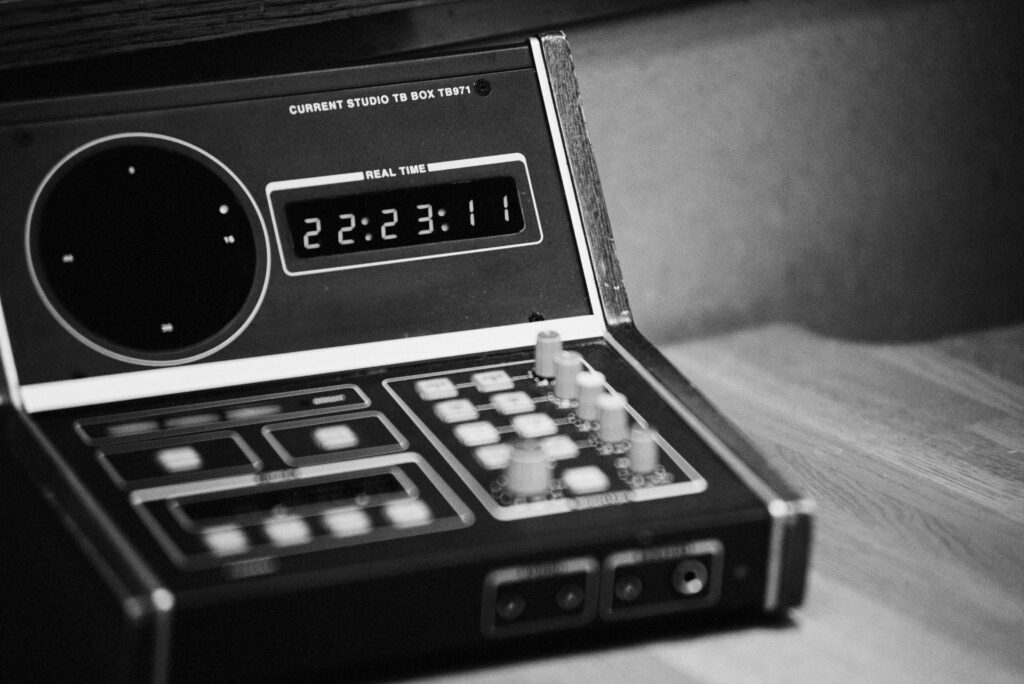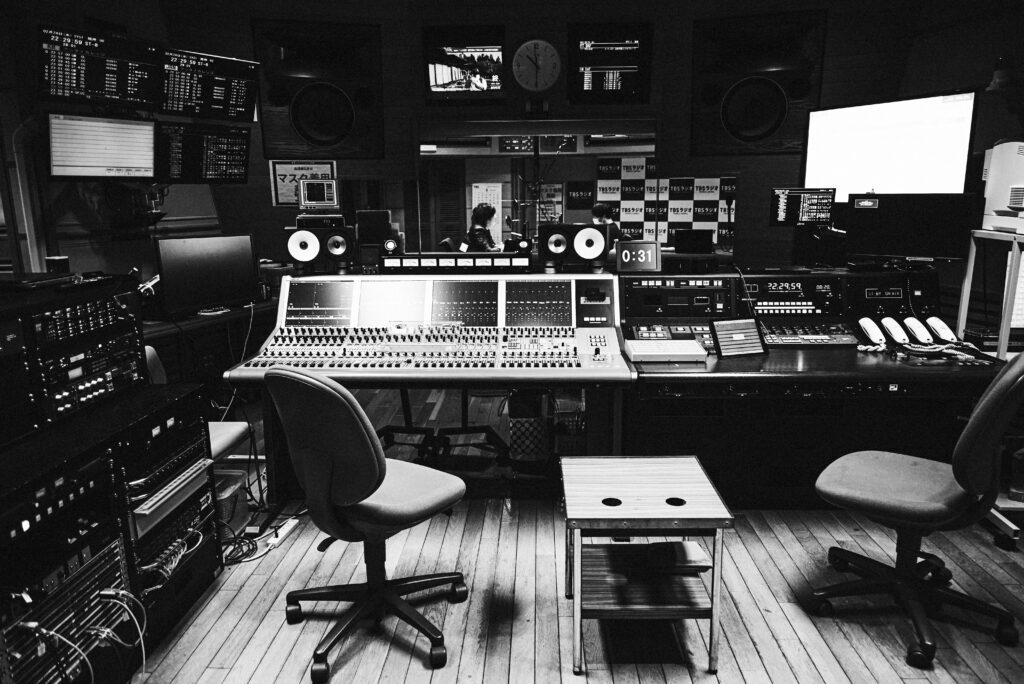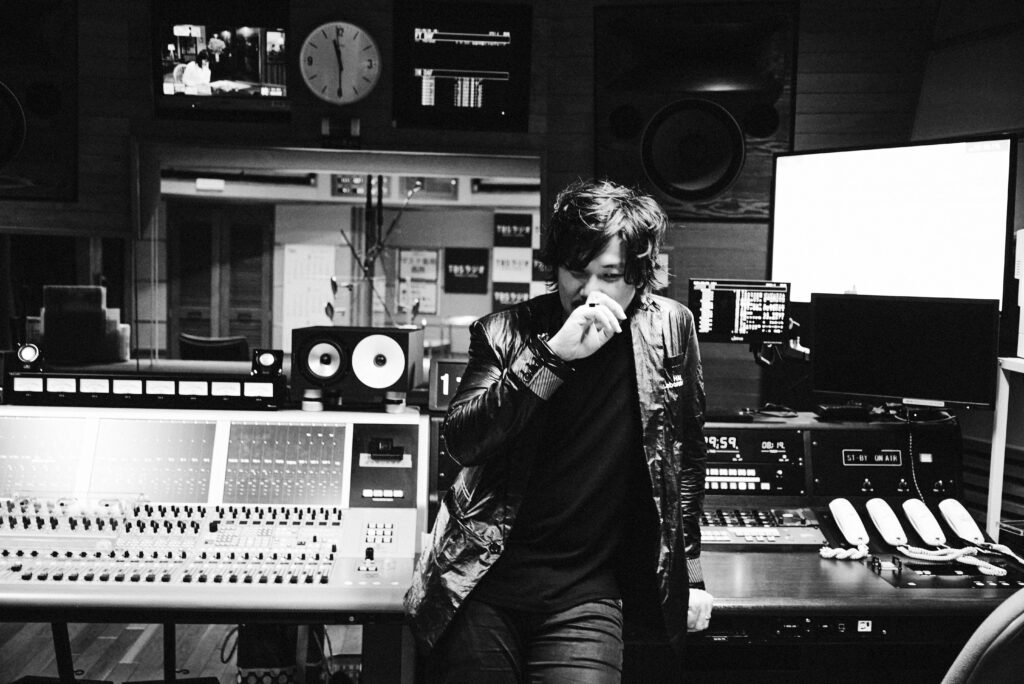The culture curation program “After 6 Junction” (hereinafter “Atrok”) started on TBS Radio in April 2018. The concept of the program is ‘a place where you can find your” like ” and where your “like” is not denied. The contents include analysis of movies, music, books, games and the cultural studies from a unique perspective. Through the cultural curation that digs ”fun” from daily life, it accepts the diversity of various hobbies and tastes in modern society.’
The main personality is Utamaru from Japanese hiphop group RYMESTAR. During the 3 hours live show on weekdays from 18:00 to 21:00, it introduces culture on various themes. The predecessor of “Atrok”, “Weekend Shuffle,” was a 2 hours live show broadcasted on every Saturday from April 2007 to March 2018 that was supported by many hardcore listeners. The success of “Weekend Shuffle” was true, but we talked to Yoshifumi Hashimoto of TBS Radio, the producer of the program about how likely the program on culture would do well in prime time on weekdays. The first part of interview covers the feelings that were put into it, as well as the background of starting “Atrok”.
The Creation of Fortuitous Encounters with Culture
——I personally liked “Weekend Shuffle”, but when I heard that “Atrok” started, I was not quite sure if it would gain acceptance among listeners from 18:00 to 21:00 on weekdays. Did you think cultural program would have a good chance of success in that time frame?
Yoshifumi Hashimoto (henceforth, Hashimoto): Of course, I did. But whether this program is successful or not would depend on from which perspective you judge (laughs). But either way, there is a concrete reason for doing the cultural program in this time frame.
Originally, TBS Radio was broadcasting baseball night games from 18:00 to 21:00 on weekdays. On the occasion of the end of this program, the company asked me to think about what to do next for this time. And the first thing I thought about was what kind of time this time slot on weekdays is. Of course, different people do different things in this part of the day. Some people work in this time, others are relaxing at home. Even so, if I were to describe it, it would be “a time zone of gradation in which people shifts their focus from work or school to their private time”.
Considering what kind of information should be circulated during that time, I thought the most suitable program can be the one on how to spend the time for oneself: the program on leisure and hobbies. What was in my mind in the very beginning when I put it into the program was the meticulous mixture of the elements of “Weekend Shuffle” that I had been doing with Utamaru would work as some kind of a culture curation program.
Besides, in relation to the concept of the program, I thought it would be great if we can create a “space” through the program where “people can find their own favorites” or where “their favorites can be connected”. Through the program, those who have only enjoyed their hobbies alone might be able to realize that they have potential friends, or even those who did not have a hobby could find something that seems enjoyable. We started it also because I thought that it would be compatible with the “connection with listeners” and “sense of community” that radio originally had.
——I see. Now I understood what you meant. Is there anything you have in mind for the program production?
Hashimoto: When running a program, I keep in mind that “this program is not just to provide something everyone will like.” Today, what you seem to like are automatically recommended even on the Internet. The more common this situation is becoming, the harder it is getting for us to get the experience of “unexpected encounter with something you like”. Such an experience can now only be created by media aimed at the general public. The music you were not interested in at all could move you and become your favorite once it was broadcasted and you are exposed to it. Such an encounter should probably be a very good experience that will lead the one to a more delightful life. That’s why I believe that if we can make “the value of arbitrarily being encountered” on the program, the program bears a significance. At least I was from a culture-barren area (laughs), so when I was a student or when my ego wasn’t fully formed, I wanted to have a place to learn various cultures. It was great If there was anything like this program.
——Although “Weekend Shuffle” was successful, wasn’t there any negative opinions or common concern on “whether it is possible to get listener ratings” or “whether it is possible to find sponsors” in response to a 3 hour-long weekday live show about cultural topics ?
Hashimoto: That wasn’t the case. Or do you think it is generally believed that “a program on culture” simply can’t get ratings? If I knew that, I would have reconsidered it (laughs). But certainly, in terms of program production, if appointing someone widely popular or invite that sort of people as guests, it would be easy to have a huge audience and to speak to sponsors about it as the program of this popular person.
Of course, it’s important to think about “the program that everyone wants to listen to”, but we also need to think about “the program that the media should do”. However, there is no point in doing something like “a study” soberly, but I thought there was a possibility of becoming “interesting and informative” if adding a new twist and entertaining elements to it through a quirky production.
Just like the PV supremacy on the Internet, if you only think about ” the element that everyone wants to listen to and the understandability,” it will inevitably come to the conclusion that popular people should come out. However, there is not much thought in it about “what these popular people should do and convey”. Today I personally think that fewer creators in the radio industry can develop a concrete vision and convey it to listeners through the program. In short, I feel that there are not a few staff members who are satisfied just to book talents and let them do what they like. Instead, our job is to make a solid plan, saying, “I want this person to do this.” In an era where the talents themselves can send messages directly to the audiences on YouTube and Clubhouse, the question is what the role of a radio professional is.
Of course, I am also the one who is relishing the fun, importance, and catchiness of making something with talents, entertainers, and artists. Apart from it, I believe there should be a will, “to display an attitude through the program.”
Radio Personality’s Preparation
——Wasn’t it difficult to arrange Utamaru’s schedule in the first place?
Hashimoto: Of course, it was difficult because he works so actively as a musician. However, I used to tell Utamaru that, “If you continue to work as a radio personality for a long time, it is normal to be suggested that you do every weekday program in the future. So you may need to decide whether to accept the offer. “
When I had a feeling that this offer was going to be true, I told him about the possibility of it in advance. Then Utamaru kindly agreed and said “I’ll try it first.” It was decided without any problem.
As he said in the broadcast, it was harder for a musician to devote his time on Saturday night to a radio show and it became easier to do tours and live performances on weekends. But anyway, the 3-hour live broadcast on weekdays is difficult (laughs).
——How long did it take for you to feel a good response after the launch of the program?
Hashimoto: It depends on definitions of “a good response”. But when I heard the voices of listeners shortly after its start, such as “I didn’t know it until now, but I fell in love with it,” or “I am now obsessed with the genre that I have never touched before,” I felt the significance of the program and I was very happy that the show has increased the number of choices in that person’s life. During the live broadcast, I once received a message from a businessman that, “I was planning to go straight back today, but I decided to stop by the bookstore introduced in the show on my way home and a book I met there was wonderful.” That response was exactly what I wanted.
Of course, I’m happy to hear that it was “interesting”, but what motivates me the most is to hear that the program made people take some actions or changed someone’s point of view. Also, people in the film industry said, “I used the story I heard on the program as a reference for my work,” and a person involved in music said, “I became interested in and collaborated with the artist who was introduced at the show,” and there were also people telling me that “I want to make the project at the show into a book” and “I want to make it into a drama.” I was incredibly honored to receive such reactions from creators.
——Is the actual index the ratings and the number of radiko plays?
Hashimoto: Also, since it is a private radio station, it is said that monetization is also important. Of course, I have to do my best for it, but I’m skeptical about the situation where only media that does well with it is regarded as a good media. It’s great to say that this show has a lot of advertising revenue and a lot of listeners, but that’s not the only role of the media. Also, the responsibility of the sender of the information is absolutely necessary. And I think we need to be proud of being the creators of the program.
It’s also important that the program benefits for society and that it has a strong presence that can be featured in other media. Radio content, such as comments from performers during the show, is often featured in net news from a gossip-like perspective. But most importantly, the program should be introduced and featured in the news in response to what it contrived.
—— “Atrok” seems to be highly trusted by listeners because of its program content and attitude.
Hashimoto: That’s right. That’s why we are making it very carefully not to betray that trust. This carefulness does definitely not mean we are taking evasive actions, but means we are careful not to forget the aggressive attitude that surprise listeners and not to be left behind in the times!
The interview continues to the second part
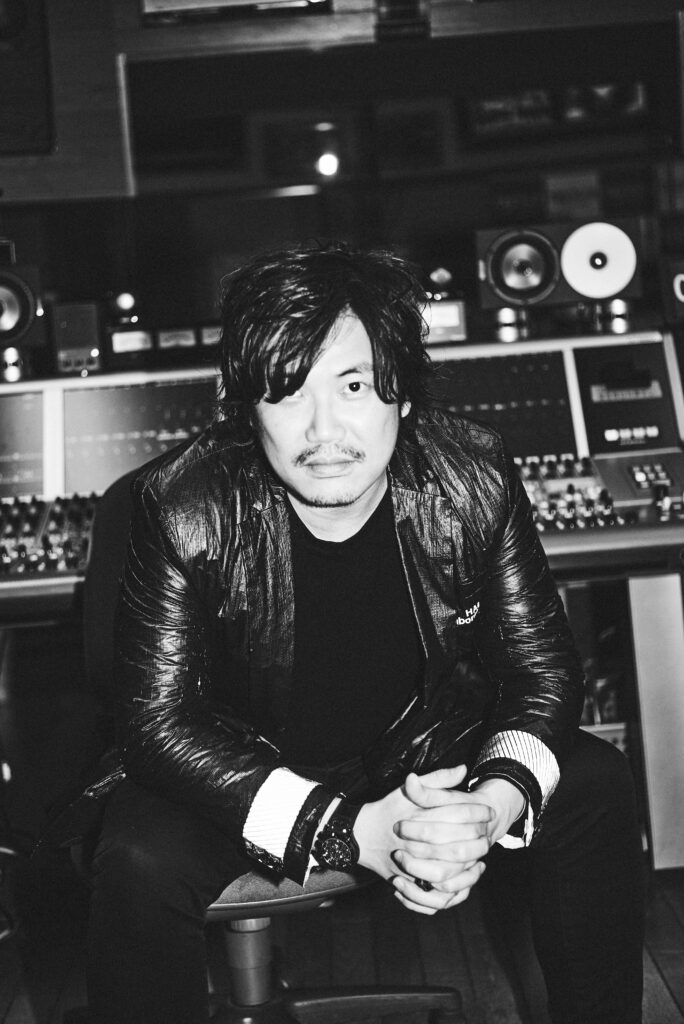
Yoshifumi Hashimoto
Born in Toyama Prefecture in 1979. Joined TBS Radio in 2004. In 2007, he launched and produced “RYMESTER Utamaru’s Weekend Shuffle”. He launched “After 6 Junction” in April 2018 and currently performs as a producer of the show. When he was a college student, he belonged to the Hitotsubashi University World Professional Wrestling Alliance (student professional wrestling organization).
https://www.tbsradio.jp/a6j/
Twitter:@nakapiro
Photography Hironori Sakunaga
Translation Shinichiro Sato

